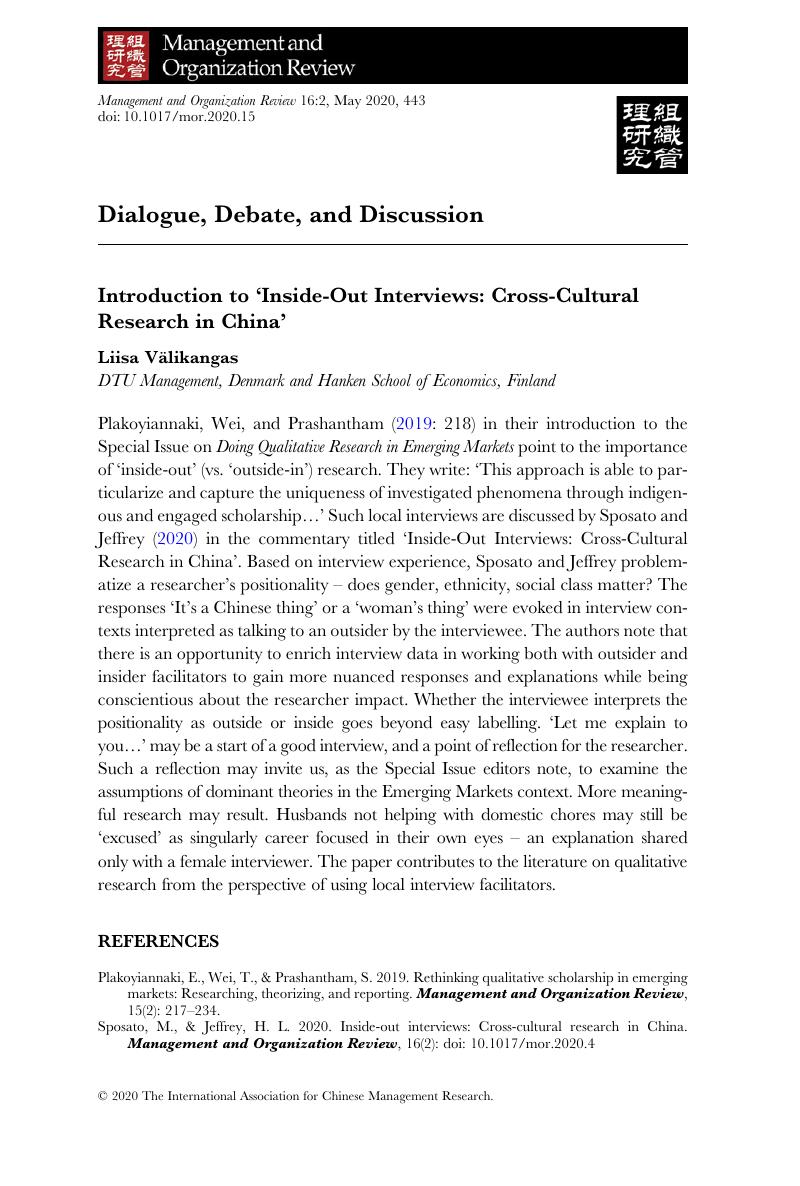Plakoyiannaki, Wei, and Prashantham (Reference Plakoyiannaki, Wei and Prashantham2019: 218) in their introduction to the Special Issue on Doing Qualitative Research in Emerging Markets point to the importance of ‘inside-out’ (vs. ‘outside-in’) research. They write: ‘This approach is able to particularize and capture the uniqueness of investigated phenomena through indigenous and engaged scholarship…’ Such local interviews are discussed by Sposato and Jeffrey (Reference Sposato and Jeffrey2020) in the commentary titled ‘Inside-Out Interviews: Cross-Cultural Research in China’. Based on interview experience, Sposato and Jeffrey problematize a researcher's positionality – does gender, ethnicity, social class matter? The responses ‘It's a Chinese thing’ or a ‘woman's thing’ were evoked in interview contexts interpreted as talking to an outsider by the interviewee. The authors note that there is an opportunity to enrich interview data in working both with outsider and insider facilitators to gain more nuanced responses and explanations while being conscientious about the researcher impact. Whether the interviewee interprets the positionality as outside or inside goes beyond easy labelling. ‘Let me explain to you…’ may be a start of a good interview, and a point of reflection for the researcher. Such a reflection may invite us, as the Special Issue editors note, to examine the assumptions of dominant theories in the Emerging Markets context. More meaningful research may result. Husbands not helping with domestic chores may still be ‘excused’ as singularly career focused in their own eyes – an explanation shared only with a female interviewer. The paper contributes to the literature on qualitative research from the perspective of using local interview facilitators.
No CrossRef data available.


